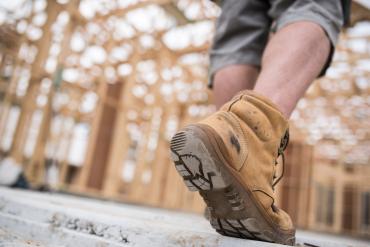
What are site costs?
Building a home can feel overwhelming. And sometimes it seems like builders speak another language. How can you make sure you’re getting a good deal when everyone is using lingo that you’re not familiar with?
One area that you’ll hear mentioned is site costs.
Site costs are the expenses associated with getting a block of land ready to build on. Specifically, they refer to the requirements of the slab needed to ensure the structural integrity of your home.
They cover things like earthworks, site preparation, and most importantly the engineering requirements for the foundation of the home. Additionally Bushfire Attack Levy (BAL) inclusions are included in site costs, as are local council applications and permits.
Read more: What you need to know about the first home buyers grant
Can site costs vary?
Builders will test soil conditions and land contours, which may uncover different conditions than were initially expected and priced. Additionally, once builders commence on site, they also may find unexpected conditions of excessive rock or issues with the soil that add significant cost. Builders may pass these costs on to customers.
If you’re comparing site costs between builders, make sure you understand exactly what you’re being charged for. You don’t want to be lured in by a cheaper price, only to be hit with extra costs down the track.
Here at Tick we only ever charge a fixed price for your site costs. So if you’re after peace of mind, fixed price is the way to go!
Tick’s fixed price site costs include things like:
- Testing the soil, surveying the lot of land and structural engineering assessments
- Levelling your block
- Upgrading foundations to be in line with the engineering requirements
- Developer guidelines (depending on the estate this may cost tens of thousands)
- Council requirements
- Bushfire attack levy
- Termite treatment
- Rock removal if required
- Arranging sediment control measures to prevent any pollution going down drains
- Connecting water supplies, drainage and other necessary services
How are site costs calculated?
Your site costs will be calculated based on the specific attributes of your block and engineering requirements for the slab. For example, the more problematic the soil and greater the slope, the more this will add costs due to increased levels of site preparation required and engineering of the foundation to ensure the house will last the test of time.
The type of soil you lay your foundations on can have repercussions for your house for decades after construction, meaning this step is extremely important.
There are different types of soil such as clay, sand and silt; meaning that soil can move, expand and contract with different levels of moisture content. For example, clay-based soils have the potential to change volume and shift with changes in the amount of moisture in the soil. These are sometimes called 'reactive soils'.
Some soils have a greater potential to expand or shrink than others, and this needs to be measured with a soil test to make sure your house's slab is designed in a way that helps protect it from soil movement that might cause it to sink or buckle. This can also cause cracking and other major damage to your home if you have the wrong type of slab.
To make sure that the right slab is poured for your home, your block will need to be tested by a geotechnical engineer. The engineer will take soil samples from the site for testing and then specify the correct site classification (according to Australian Standard AS 2870/2011 - Residential slabs and footings).





